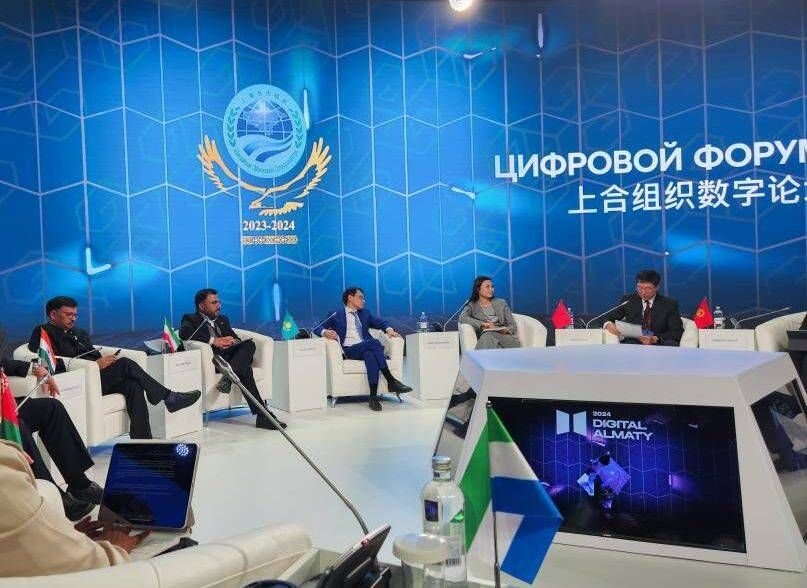Iran offers further co-op with SCO in ICT

TEHRAN – The Islamic Republic of Iran is ready to boost cooperation with the Shanghai Cooperation Organization (SCO) in developing digital infrastructure such as cross-border optical fiber networks, data centers, and satellite communications.
“Iran can facilitate the development and expansion of digital infrastructure such as optical fiber networks, 5G technology, and satellite networks through its territory, which is located in the center of the digital Silk Road,” IRIB quoted ICT minister Issa Zarepour as saying.
He made the remarks in the Digital Forum of the SCO which was held in Almaty, Kazakhstan on February 1.
The meeting hosted the heads of ministries and agencies of the member states of the Shanghai Cooperation Organization (SCO) responsible for the development of information and communication technologies. The event was held within the framework of the Digital Almaty 2024 forum.
Pointing out that our main duty here is to cooperate and find ways for a safer, fairer, and more prosperous cyberspace, Zarepour added, “Emerging technologies such as Artificial Intelligence (AI), Internet of Things, and Quantum Computing are progressing so fast that if necessary actions are not taken to fill in the gaps, the digital gap will soon tear us apart.”
Digital transformation is a global trend that transforms nations, governments, and traditional business models and contributes to the reduction of corruption, poverty, and inequality, and increase in employment, and transparency, he said.
Referring to unilateral sanctions and export control mechanisms, Zarepour said the U.S. unfair sanctions have limited free access to advanced technologies. Developing a banking ecosystem to achieve a common digital payment platform is one way to jointly address this challenge.
Pointing out the challenges of cross-border platforms for the digital governance of countries, he stated: "Countries must take up appropriate measures that guaranty to hold the private sector with extraterritorial influence accountable for their behavior in cyberspace, otherwise they are responsible for deliberately violating the national sovereignty of other countries."
Zarepour went on to say, “The cyberspace in the future should be multipolar; to break up monopolies enjoyed by big tech companies, we need to stay united to have a stronger voice in the international decision-making process and play a key role in the future of the digital world.
By integrating and connecting the digital platforms that promote trade among our nations and creating common data centers, we can boost our cooperation and invest in the development of AI solutions for sustainable development.”
MT/MG
Leave a Comment